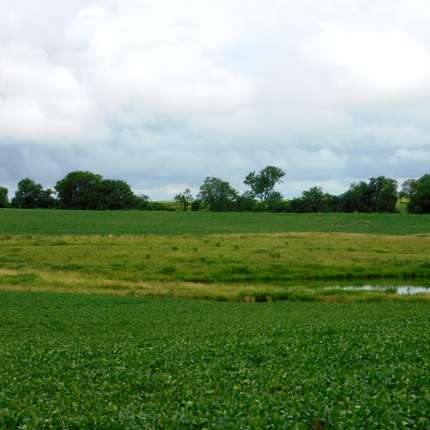By Roz Brown, Public News Service - Iowa
Farmers are used to adjusting for weather, but some are adjusting for climate change by planting a variety of crops, sowing cover crops and leaving land unplowed.
Many small farmers fear adjusting to climate change will add more regulations to their already declining bottom line. But others, such as sixth-generation farmer Wade Dooley of Albion, say more erratic and extreme weather events related to climate change mean farmers need to adopt mitigation strategies.
"So that we can keep operating, so we can keep farming, so that this isn't a sixth-generation farm that stops after me - because the weather's not gonna stop, the climate is going to continue to change,” Dooley said. “We don't hit the brakes and stop things from happening, we just can slow them down and keep them from being horrible."
Some farmers and landowners are adopting conservation practices that include farm ponds, wetlands, oxbows and buffers, and structural improvements to reduce anticipated flood impacts.
Katie Rock, policy associate with the Center for Rural Affairs, said when talking to Iowa farmers, it's increasingly clear that many want to innovate on their farms to address climate change.
"They've taken the initiative to add on-site solar power and make energy-efficient upgrades, and these changes have led to significant cost-savings,” Rock said. “And farmers and landowners, they also lead through conservation practices that can improve soil health."
Matt Russell is executive director of the state's Interfaith Power and Light. He believes Iowa and other Midwest states that provide America's food are in a position to lead the conversation on climate change.
"One of our strongest ways to lead is to engage Iowa farmers to innovate on their farms, capturing carbon, generating renewable energy," Russell said. “And then also to advocate for those practices and the resources to make that happen on their farms."
He said to deal with a changing climate, government policy makers will need to not only encourage maximum yields, but also incentivize carbon farming.





